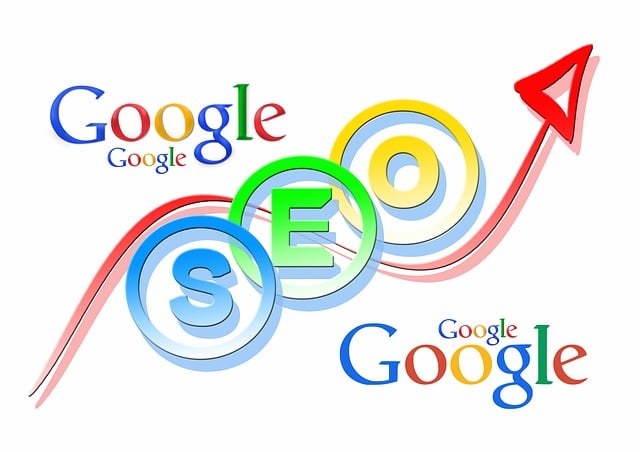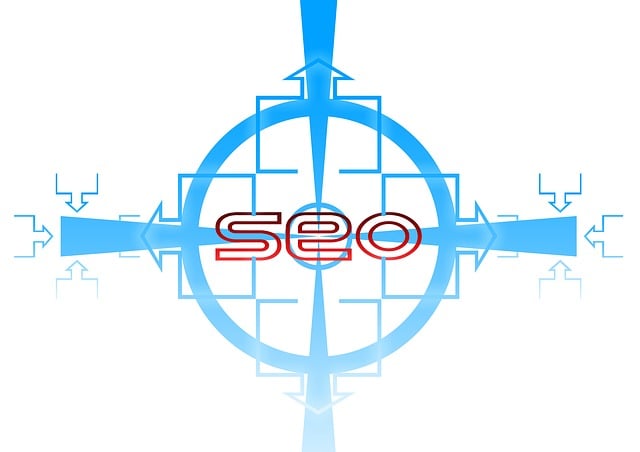Search Engine Optimization (SEO) is a powerful strategy for businesses aiming to grow online. By understanding search engine algorithms, companies can implement strategies like keyword optimization, improved user experience, and high-quality content creation to increase visibility and attract organic traffic. The benefits of SEO include:
1. Increased Organic Reach: Targeted keywords draw potential customers actively searching for products/services.
2. Enhanced User Experience: Optimized content, faster site speed, and mobile usability keep visitors engaged longer, lowering bounce rates.
3. Improved Authority and Credibility: High-quality backlinks from reputable sources build trust and elevate search rankings.
4. Targeted Audience Engagement: Understanding user intent aligns content with interests, fostering meaningful interactions and conversions.
5. Long-term Competitive Advantage: A robust SEO strategy creates sustainability in the dynamic digital landscape.
6. Better Analytics and Data-Driven Content: Tools integrated with SEO provide insights into user behavior for more effective content creation.
In today’s digital landscape, understanding Search Engine Optimization (SEO) is paramount for any website aiming to thrive. This powerful tool plays a pivotal role in driving traffic and enhancing online visibility. The article delves into the multifaceted benefits of SEO, exploring how it increases organic reach by optimizing content and improving user experience, thereby reducing bounce rates. We’ll guide you through leveraging keyword research, building quality backlinks, on-page optimization, technical SEO, and measuring success via KPIs, all vital components in unlocking the full potential of your website.
Understanding Search Engine Optimization (SEO) and its Role in Driving Traffic

Search Engine Optimization (SEO) is a powerful tool for any website aiming to attract more visitors and grow its online presence. At its core, SEO involves understanding how search engines like Google work and what types of content and strategies can improve a site’s ranking in search results. By optimizing various elements on a webpage—from keywords and meta descriptions to the overall user experience—businesses can increase their visibility and reach a wider audience.
The benefits of SEO are vast, especially when considered in the context of long-term digital marketing goals. It drives organic traffic to websites by ensuring they appear at the top of search engine results pages (SERPs), often gaining more clicks than paid advertising. Effective SEO also fosters brand awareness and authority within a specific industry or niche, as top rankings signal trustworthiness and relevance to potential customers. By implementing sound SEO practices, businesses can enhance their online visibility, attract qualified leads, and ultimately boost sales and revenue.
The Impact of SEO on Website Visibility and Rankings

Search Engine Optimization (SEO) plays a pivotal role in enhancing website visibility and driving organic traffic. By understanding and implementing effective SEO strategies, businesses can significantly improve their online presence and reach their target audience. The benefits are vast; from boosting search engine rankings to increasing website credibility, it ensures that your site appears at the top of search results, making it more visible to potential customers.
When a business optimizes its website for search engines, it becomes easier for relevant users to discover the site, resulting in higher click-through rates and increased engagement. This process involves optimizing content, structuring websites efficiently, and ensuring they are mobile-friendly, all of which contribute to a better user experience. As a result, search engines recognize these sites as valuable resources, leading to improved rankings over time.
Unlocking the Benefits: Increased Organic Reach and Targeted Audience Engagement

Unlocking the Benefits: Increased Organic Reach and Targeted Audience Engagement
Search Engine Optimization (SEO) is a powerful tool that goes beyond driving more website traffic. It offers a multitude of benefits, starting with enhanced organic reach. By optimizing your site for relevant keywords, you make it more visible to potential customers actively searching for products or services related to your offerings. This visibility translates into increased organic traffic as people naturally click on the top results in search engine pages.
Moreover, SEO fosters targeted audience engagement. It allows you to connect with individuals who are genuinely interested in what you have to offer. By understanding user intent behind search queries and aligning your content with these intents, you can provide solutions that resonate with your target demographic. This not only improves user experience but also encourages longer browsing sessions and higher conversion rates, ultimately strengthening your online presence.
How SEO Improves User Experience and Reduces Bounce Rates

Search Engine Optimization (SEO) plays a pivotal role in enhancing user experience and significantly reducing bounce rates on websites. By optimizing content to rank higher in search engine results, SEO ensures that visitors find relevant, high-quality information quickly. When a website is well-optimized, users are more likely to spend more time browsing the pages, engaging with content, and interacting with the site’s features. This improved user experience directly contributes to lower bounce rates as visitors feel satisfied and involved.
Additionally, SEO helps in understanding user behavior and preferences through analytics tools. By tracking user interactions and search queries, website owners can identify popular content, pinpoint areas of improvement, and make data-driven decisions. These insights enable the creation of more relevant and personalized content, further captivating and retaining users. As a result, visitors are more inclined to explore various pages within the site, thereby decreasing the likelihood of them leaving after just one page view (bounce).
Leveraging Keyword Research for Effective Content Optimization

Keyword research is a cornerstone of successful Search Engine Optimization (SEO) strategies, offering profound benefits that drive more website traffic. By understanding your target audience’s search queries and intentions, you can create content that resonates with them. This approach ensures that when potential customers seek solutions or information related to your niche, your website appears prominently in search engine results pages (SERPs).
Effective keyword research involves identifying high-volume, relevant keywords that align with your business goals. Incorporating these keywords naturally within your web page content, titles, headings, and meta descriptions optimizes your site for both users and search engines. This strategy not only enhances visibility but also improves user experience by providing valuable, targeted information, leading to longer browsing sessions and higher conversion rates.
Building Quality Backlinks: A Powerful SEO Strategy

Building quality backlinks is a cornerstone of any robust Search Engine Optimization (SEO) strategy, offering profound benefits that can drive substantial website traffic. High-quality links from reputable sources signal to search engines that your content is valuable and trustworthy, enhancing your site’s authority and credibility. This, in turn, can lead to improved search rankings for relevant keywords, making your website more visible to potential visitors.
When successful, this strategy attracts organic traffic as users are more likely to click on links from sites they trust. Furthermore, backlinks contribute to a healthier online presence by fostering relationships with other webmasters and influencing algorithms that determine where information is shared and discovered. This long-term approach not only boosts website traffic but also creates a sustainable competitive advantage in the digital landscape.
Optimizing On-Page Elements for Search Engines

Optimizing on-page elements is a crucial aspect of Search Engine Optimization (SEO) that directly influences your website’s visibility and traffic. By focusing on what search engines, like Google, look for when crawling websites, you can enhance your site’s ranking and attract more organic visitors. This involves several key strategies: from refining title tags and meta descriptions to creating compelling, keyword-rich content that resonates with your target audience.
When implementing on-page SEO, consider the benefits of using relevant keywords naturally throughout your content, including headings (H1, H2, etc.). This helps search engines understand your page’s context and intent, leading to improved indexing and a higher chance of appearing in relevant searches. Additionally, optimizing images with alt tags not only enhances accessibility but also allows search engines to ‘see’ the visual elements on your site, broadening the scope of what they can index, ultimately driving more targeted traffic to your website.
The Role of Technical SEO in Enhancing Website Performance

Technical SEO plays a pivotal role in enhancing a website’s performance and visibility, which are crucial for reaping the benefits of search engine optimization (SEO). It involves optimizing the technical aspects of a site to ensure it’s easily accessible and understood by search engines. This includes improving site speed, ensuring mobile-friendliness, creating a structured URL hierarchy, implementing XML sitemaps, and fixing broken links. These measures not only make your website more user-friendly but also signal to search engines that your content is valuable and worthy of high rankings.
By addressing technical SEO issues, you can significantly reduce bounce rates and increase time spent on page, indicating to search algorithms that your site provides a positive user experience. This, in turn, boosts your website’s authority and relevance in the eyes of search engines, driving more organic traffic over time.
Measuring and Analyzing SEO Success: Key Performance Indicators (KPIs)

Measuring and analyzing SEO success is a critical aspect of understanding the benefits of search engine optimization. Key Performance Indicators (KPIs) provide insights into how effectively your SEO strategies are driving traffic and conversions. These metrics help in identifying what’s working and what needs adjustment, ensuring that your efforts align with your business goals.
Popular KPIs include organic traffic growth, bounce rate, average session duration, and conversion rates. Organic traffic growth shows the increase in visitors coming from search engine results without paid advertising. Bounce rate measures the percentage of visitors who leave your site after viewing just one page. Average session duration indicates how long users are engaging with your content, while conversion rates help gauge the effectiveness of your SEO efforts in achieving desired actions like purchases or sign-ups.
